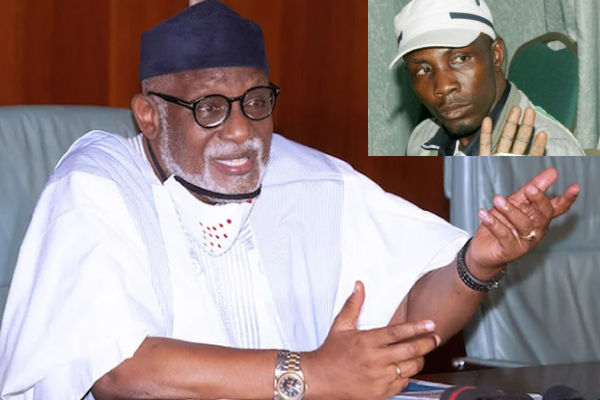Ondo State Governor Rotimi Akeredolu has expressed displeasure with the awarding of a controversial pipeline surveillance contract to a private security firm owned by a former Niger Delta agitator, Government Ekpemupolo, also known as Tompolo.
According to him, it is shocking that the Federal Government awarded the contract to such a security outfit.
This was revealed by Mr. Akeredolu in a statement that he personally signed and provided to journalists via his Chief Press Secretary, Richard Olatunde.
[wonderplugin_video iframe=”https://youtu.be/fLxF55CRNPM” lightbox=0 lightboxsize=1 lightboxwidth=960 lightboxheight=540 autoopen=0 autoopendelay=0 autoclose=0 lightboxtitle=”” lightboxgroup=”” lightboxshownavigation=0 showimage=”” lightboxoptions=”” videowidth=600 videoheight=400 keepaspectratio=1 autoplay=0 loop=0 videocss=”position:relative;display:block;background-color:#000;overflow:hidden;max-width:100%;margin:0 auto;” playbutton=”https://www.tvcnews.tv/wp-content/plugins/wonderplugin-video-embed/engine/playvideo-64-64-0.png”]
He said it is safe to conclude that the Federal Government has, impliedly, permitted non state actors to bear heavy assault weapons while denying same privilege to the States, the federating units.”
He added that the engagement of private organisations to handle serious security challenges reinforces the belief that the whole defence architecture in the country needs an urgent overhaul.
The NNPC had explained why the Federal Government awarded the controversial pipelines surveillance contract to a former Niger Delta agitator, Government Ekpemupolo also known as Tompolo.
The Chief Executive Officer of the Nigerian National Petroleum Company Limited (NNPCL) Mele Kyari explained that it was not the first time that individuals within the Niger Delta region were awarded a contract for pipeline surveillance, noting that the contract was for the interest of the people.
He said it was his belief that the Federal Government has taken the right decision to hire private contractors to man its oil pipeline network nationwide.
Mr. Kyari argued that although the security agencies are doing their part, and to end pipeline surveillance would require the involvement of private entities and community stakeholders.





